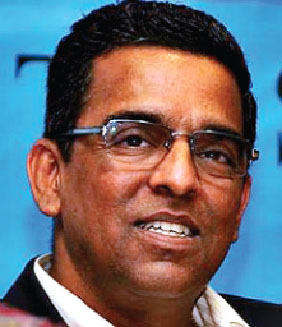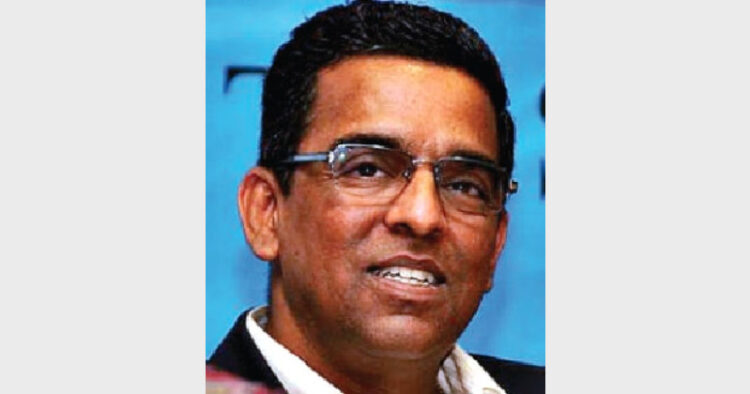 Defence Minister Manohar Parrikar has brought about a refreshing transparency in its policies and approach to vital issues like procurements, modernisation of the armed forces and welfare of troops
Defence Minister Manohar Parrikar has brought about a refreshing transparency in its policies and approach to vital issues like procurements, modernisation of the armed forces and welfare of troops
Nitin A Gokhale
India’s defence ministry, housed South Block, is easily one of the largest—if not the largest—but most certainly the complex of ministries in the government of India. It has a huge budget (Rs 2.58 lakh crores) with the administrative
ministry for over 15 lakh military personnel (Army, Navy, Air Force and Coast Guard).
So for someone like Manohar Parrikar it has not been a challenge to grasp the intricacies and complexities of the important ministry but as a trained engineer, he has been quick on the uptake and to put his own stamp on the day to day functioning of the MoD. There have been slip-ups and some embarrassment too because
well-entrenched vested interests have tried to undermine his authority. Overall, however, Parrikar has managed to get the ministry up and running and bring about a refreshing transparency in its policies and approach to vital issues like procurements, modernisation of the armed forces and welfare of troops.
Despite his efficiency and good intentions, the legacy left behind by a decade and more of lethargy and timidity, it will take a monumental effort by Parrikar to make Ministry of Defence (MoD) effective in discharging its duties .
So completely ineffectual was AK Antony as defence minister that he cancelled around a dozen tenders on receipt of the first anonymous (obviously motivated) complaint and allowed the babus to run the ministry as they wished. In contrast, Antony’s immediate predecessor Pranab Mukherjee was in complete control of South Block. If he had stayed Raksha Mantri as long as Antony did, the
military would not have perhaps landed up in such a mess as it found itself in 2014.
The last Comptroller and Auditor General (CAG) Report tabled in Parliament makes a grim reading. “Stocking of ammunition even at ‘minimum acceptable risk level’ was not ensured, as availability of ammunition as on March 2013 was below this level in respect of 125 out of a total of 170 types of ammunition,” the CAG report pointed out. Also, in 50 per cent of the total types of ammunition, the holding was “critical” — insufficient for even 10 days of fighting, the report added. This is just one instance. Under, Parrikar however, purchases have been speeded up.
Prioritisation of projects was the first step. Defence acquisitions are expensive and since five years very little was purchased, the backlog just added to the problem. After a month or so spent in learning the ropes, and another three in reviewing different projects, Parrikar found that the bureaucracy in the ministry — both civil and military — was sitting on some 400-odd big and small projects that were critical to the three armed forces. A thorough review revealed that nearly one-third of the 400-odd projects were now irrelevant. So they were discarded. About 50 projects were accelerated since they were of critical importance.
Next, Parrikar and his aides identified critical schemes across the three services that needed immediate funding and implementation. The purchase of 50,000 bullet proof jackets, for instance, was sanctioned on a fast track basis once it was realised that troops involved in counter-terrorism, counter-insurgency operations were facing a severe shortage. Even helmets, an essential item for protection to jawans have finally been ordered after two decade long gap. An Indian company, the Kanpur-based MKU Industries has been contracted to manufacture 1.58 lakh helmets.
Similarly, a small bureaucratic standoff had held up supply of Extreme High Altitude Clothing (for soldiers posted in Siachen and similar terrain) for more than two years. Parrikar personally intervened and resolved the issue.
The figures speak for themselves: The MoD cleared a total of 124 new contracts worth Rs 2,09751 crore since the Modi government came to power. As the numbers show, between May 2014 and March 2015, 38 schemes worth Rs 77,424 crores were sanctioned; in the fiscal year 2015-16, 63 schemes worth Rs 47,291 crore were awarded while in the current year (up to December 2016), 23 projects worth Rs 85,036 crore were cleared. These include artillery guns, attack and medium lift helicopters for the Army (Chinook and Apache helicopters from the US); frigates and mine
counter-measure vessels for the navy and Akash missiles for the Air Force. Post September 2016, when India conducted surgical strikes against Pakistan and it seemed that Pakistan may mobilise for a larger conflict, India’s Cabinet Committee on Security (CCS) authorised the three forces to make fast-track acquisitions worth nearly Rs 20,000 crores making it one of the most productive years for the MoD.
Some other notable achievements of the MoD include:
n Liberalised industrial licensing which has reduced entry barriers.
n Exchange Rate Variation creating level
playing field between PSUs and Pvt.enterprises.
n Buy –IDDM category given top most procurement priority, for promoting indigenisation.
2013-14 2014-15 2015-16
DPSUs 32,623 35,036 38,281
OFB 11,123 11,364 13,070
Industrial licensing:
n 214 licenses between 2001 and 2014.
n 125 licenses between 2014 and March 2016.
Parrikar’s boldest decision so far has been to break the logjam in the decade- long saga for procurement of the Rafale combat jets from the French aviation giant Dassault. It is to Parrikar’s credit that he decided to think differently on a knotty issue and suggested a way out to the Prime Minister. So hours before Prime Minister Narendra Modi embarked on his three-nation tour in April, a political decision was taken to explore the option of buying Rafale jets through a government-to-government (G-to-G) contract with France.
But more than anything else, the former Goa Chief Minister seems to have brought in a sense of purpose in the notoriously slow MoD. Without directly criticising Antony, Parrikar said in an interview that the ministry was rudderless for a long period. “There was no control over the system. There were no reviews, no feedback and there was no fear of punishment for non-performance. An important
ministry like Defence cannot run like this,” Parrikar remarked. Next on his agenda has been three important steps: simplify the Defence Procurement Procedure (DPP), allow authorised, registered agents to represent
companies and eliminate delays or cancellation of contracts because of anonymous complaints.
Some of the more pressing issues that the Defence Ministry has been keen to resolve quickly are the question of appointment of ‘legal’ or authorised agents by defence firms and the policy of blanket blacklisting of
manufacturers. The Ministry wants to use the power to ban a firm only in the rarest case. The previous government had indiscriminately blacklisted over a dozen firms, severely restricting the options of the forces to source equipment.
Similarly, by legalising agents, the ministry wants to bring in a degree of transparency in the interaction between defence manufacturers and government officials. Currently, representatives of different firms–legal or otherwise–
operate clandestinely since the legal position is unclear.
The defence bureaucracy has become sufficiently alive to the need for faster clearances but everyone is waiting for faster results. The military and the civil babus have realised that Parrikar, an IIT graduate is a fast learner and man who gets to the crux of the matter fairly quickly. This has allowed him to take decisions quickly and disallowed the bureaucrats to run circles around him.
To me, the evidence that Parrikar is a fast learner and a man who takes deep interest in the domain he is heading came during an interview for Doordarshan. I asked him the standard question about the possibility of appointing a Chief of Defence Staff (CDS), an issue that has often kept the three forces divided. That he spoke about starting the process in June
wasn’t as much a surprise as the revelation that he was currently reading the Goldwater-Nichols Act (of the United States) that pushed through sweeping reforms in the American military almost 30 years ago. I for one would not have expected an average Indian politician to remember the name of the legislation, leave alone read it.
Given the interest shown by him and the grasp he has displayed over some of the complex matters, Parrikar could become one of India’s most effective defence ministers in a long time.
(The writer is an authoritative defence analyst, author and media trainer. He now runs his own specialised website BharatShakti.in)













Comments